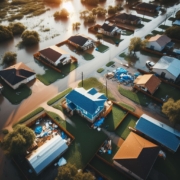Tom and Harry Talk Personal Umbrella Policies While Running
(Tom and Harry are jogging along a dirt trail at sunrise, their breath visible in the cool morning air. The trees around them sway gently in the breeze, and the rhythmic sound of their sneakers hitting the ground fills the silence between words.)
Harry: [Breathing steady] You ever notice how running and life are a lot alike?
Tom: [Grins] If you mean that both get harder the older you get, then yeah.
Harry: Ha! That too. But I was thinking about how one misstep can change everything. You’re running fine, feeling good, and then—bam!—you trip over a root and eat dirt.
Tom: Sounds like you’re talking about more than just running.
Harry: Yeah. My neighbor is in a real mess. His son borrowed his car, got in a wreck, and now they’re getting sued for way more than their insurance covers.
Tom: [Shakes his head] That’s rough. And let me guess—they don’t have a personal umbrella policy?
Harry: Nope. Didn’t even know what it was until now.
Tom: That’s the thing. Most people don’t. They think their home and auto insurance is enough, but these days? Lawsuits are out of control. One big accident, and you could lose everything.
Harry: Yeah, I mean, his car insurance covered some of the damages, but the other guy’s lawyer is coming after their personal assets now. I never thought about that happening.
Tom: Exactly. Regular liability limits aren’t keeping up with the way people sue these days. A personal umbrella policy gives you extra protection—think of it like an extra layer over your regular policies.
Harry: So, let’s say I cause a wreck, and the medical bills are more than my auto insurance covers. This umbrella policy would kick in?
Tom: Yep. And not just car accidents. It covers all sorts of things—someone getting hurt on your property, your kid doing something dumb that lands you in a lawsuit, even stuff like defamation if you say something online that ticks off the wrong person.
Harry: Wait, so if my teenage nephew posts something stupid on social media, and someone sues, that could come back on me?
Tom: If you’re legally responsible, yeah. People don’t realize how easy it is to get dragged into a lawsuit these days. That’s why umbrella coverage is so important.
Harry: Alright, so what’s the damage? How much does this cost?
Tom: For a million bucks in coverage? A couple hundred bucks a year. The more coverage you want, the more it costs, but it’s still one of the best deals in insurance.
Harry: [Whistles] So, for less than I spend on coffee in a year, I can protect myself from losing my house if something goes sideways?
Tom: Exactly. It’s like running with the right shoes. You don’t think about it until you twist your ankle, but by then, it’s too late.
Harry: [Laughs] Alright, alright. You sold me. How do I get one?
Tom: Simple—call your insurance agent and ask. They’ll look at what you already have and add it on. Takes maybe 15 minutes.
Harry: [Nods] Good deal. I’d rather be covered than caught off guard.
Tom: Smart man. Now, let’s pick up the pace—I want to get breakfast after this, and I’m starving.
(They push forward, picking up speed, with Harry already mentally adding “call insurance agent” to his to-do list.)













